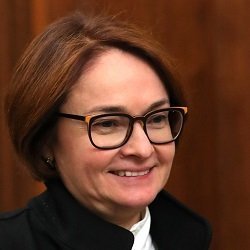‘It will be just as unaffordable for most people to buy a flat’

The Board of Directors of the Bank of Russia decided to lower the key rate to 20% a year. This is the first rate reduction since 2022. According to the regulator's forecasts, annual inflation will reach 4% by 2026 and will be maintained at this level in the future. Subsequent decisions on the key rate will depend on the inflation dynamics and inflation expectations of the population. Realnoe Vremya interviewed experts from the construction and automotive industries about how purchasing power will change against the backdrop of the Central Bank's decision and what will happen to loan rates.
Banks have already begun to lower interest rates on loans and mortgages
For the first time since 2022, the Central Bank has lowered the key rate to 20%. According to the regulator, despite the fact that domestic demand is growing faster than the market, the Russian economy continues to demonstrate balanced growth. Against the backdrop of the changes, the Moscow Exchange index exceeded 2,900 points.
Chairman of the State Duma Committee on Financial Markets Anatoly Aksakov suggested in his Telegram channel that the regulator may reduce the rate again by the end of 2025 — to 17-18% (the editor's note: the rate of 17% was set by the Central Bank of the Russian Federation in December 2014).

Most banks will most likely reduce rates within one percentage point. For some players, the size of the reduction may be more noticeable, admits head of expert analytics at Banki.ru Inna Soldatenkova.
“However, in general, this will not significantly affect the availability of credit products, since the terms of them, in addition to the key rate, are now affected by a whole pool of macroprudential requirements,” she believes.
Thus, Sber plans to reduce rates on mortgages and consumer loans from June 10. At the same time, a decrease in interest rates on deposits is expected.
Natalia Orlova, Chief Economist of Alfa Bank, said that the Central Bank's decision to reduce the key rate is in line with the expectations of financial markets.

Deposits are still more interesting than buying a car
Head of Sales at eCredit (a division of the Avto.ru service) Nikita Margolin shared his opinion on changes in the car loan market and the prospects for the recovery of the automobile segment against the backdrop of a decrease in the key rate.

According to the expert, the share of transactions involving borrowed funds exceeds 70%, mainly because manufacturers are actively offering preferential lending terms. It is unlikely that serious changes for the end consumer should be expected after a slight easing of conditions.
“Despite this, we can expect that this is the beginning of a positive trend and that demand will begin to recover in the foreseeable future,” he concluded.
The real estate market will be in a waiting mode
Managing partner of BMP Brands Group Maxim Nikolayev is confident that, despite the expected level of reduction in the interest rate on loans, the latter will still remain a barrier for the consumer due to its high rate.

Nabiullina did not rule out raising the key rate if inflation grows
Nevertheless, the head of the regulator, Elvira Nabiullina, said that she does not rule out raising the key rate to the original level.
